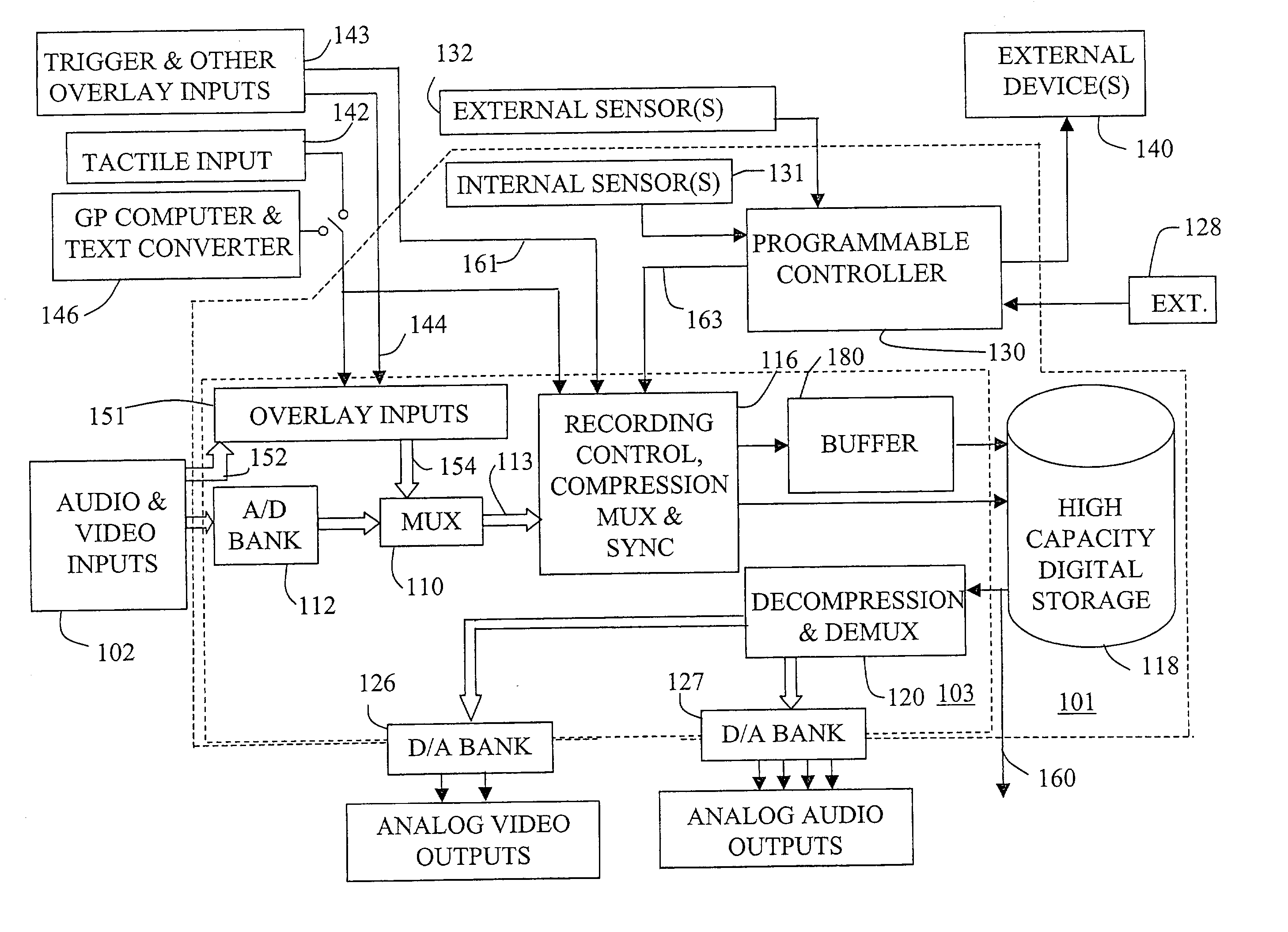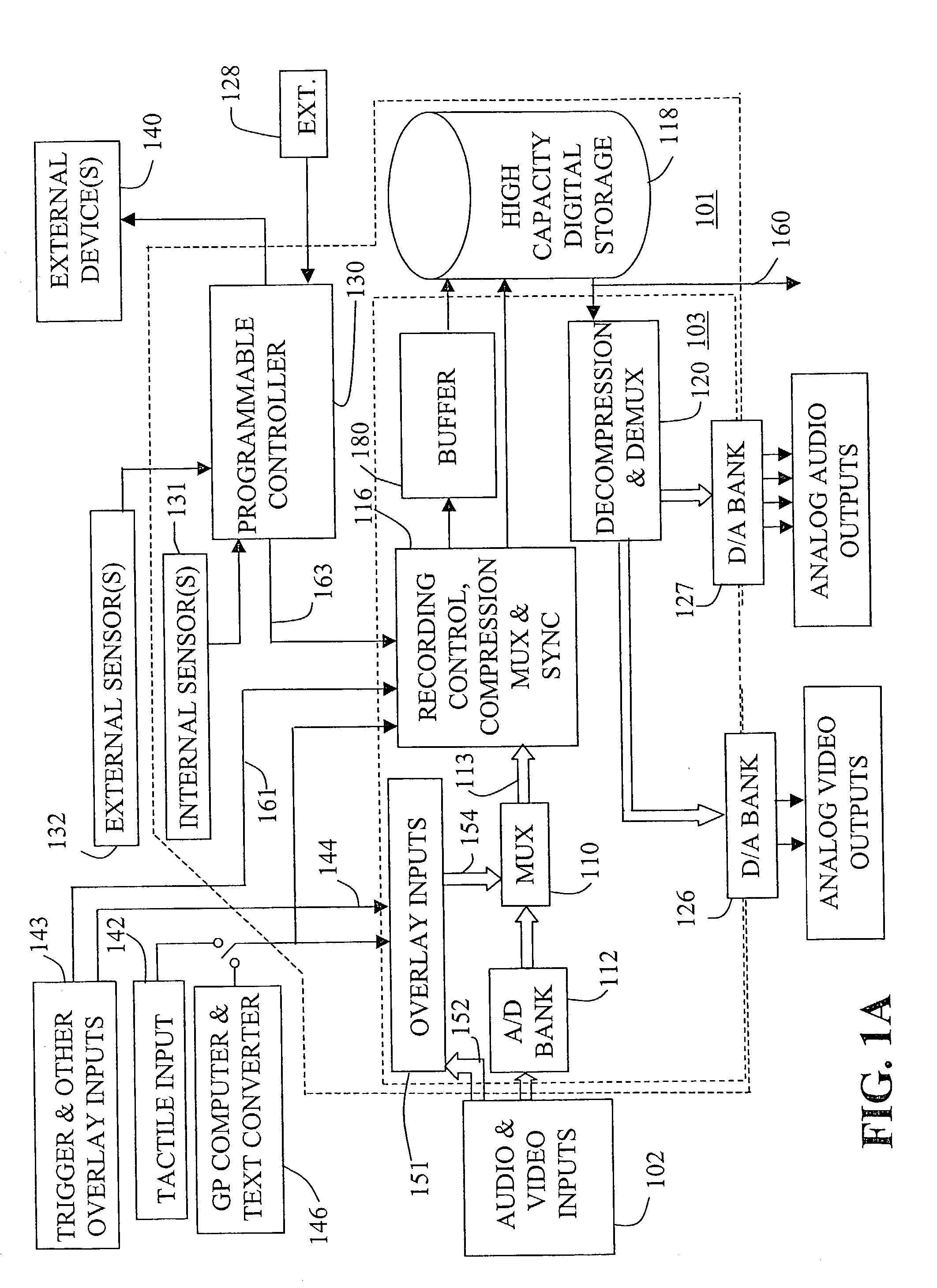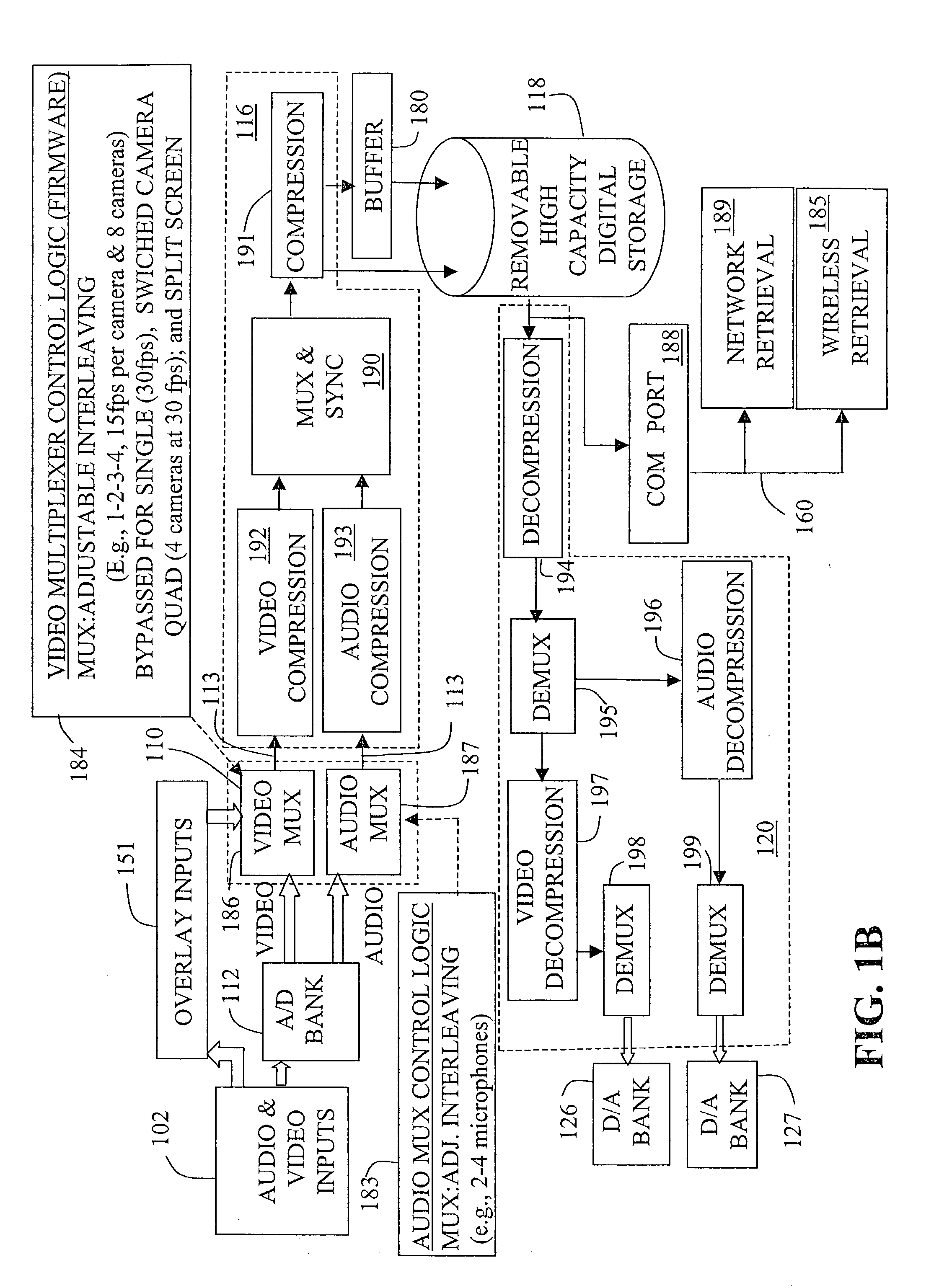Event-based vehicle image capture
a technology for vehicle images and events, applied in the field of vehicle image capture, can solve the problems of inability to record valuable evidence, inability to archive and review full-time recordings, and inability to meet the needs of recording and reviewing full-time,
- Summary
- Abstract
- Description
- Claims
- Application Information
AI Technical Summary
Benefits of technology
Problems solved by technology
Method used
Image
Examples
Embodiment Construction
)
[0090] Overview
[0091] The following description concerns various systems and methods pertaining to digital video recording for evidentiary and monitoring purposes, and also concerns related systems, methods and concepts that have uses in other contexts. An important application of the systems and methods described herein is to mobile vehicle-based video recording. However, other applications also are described herein, such as stationary recording of moving vehicles, and particularly recording of vehicle license plates and other identification information. Still other applications of the technology described herein will be readily apparent to those skilled in the art.
[0092] Multiple aspects of such video recording systems and methods are described below, with some of such different aspects being claimed in other patent applications. In this regard, commonly assigned patent applications titled "Mobile Digital Video Recording with Pre-Event Recording", "Heating and Cooling of a Mobile...
PUM
 Login to View More
Login to View More Abstract
Description
Claims
Application Information
 Login to View More
Login to View More - R&D
- Intellectual Property
- Life Sciences
- Materials
- Tech Scout
- Unparalleled Data Quality
- Higher Quality Content
- 60% Fewer Hallucinations
Browse by: Latest US Patents, China's latest patents, Technical Efficacy Thesaurus, Application Domain, Technology Topic, Popular Technical Reports.
© 2025 PatSnap. All rights reserved.Legal|Privacy policy|Modern Slavery Act Transparency Statement|Sitemap|About US| Contact US: help@patsnap.com



